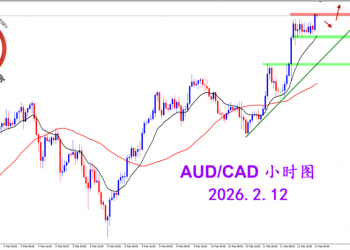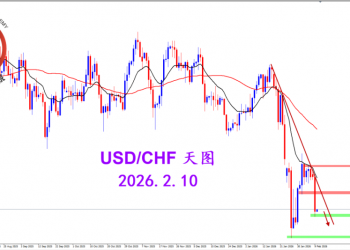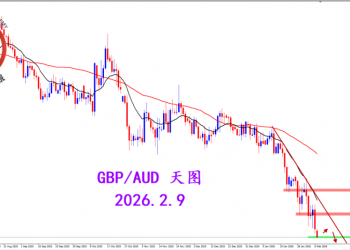(Note: this piece is a modified version of a paper written by my colleagues David Karsb, John Hardy and Steen Jakobsen of Saxo Bank Fund Management)
The Bush administration's increasing focus on a re-election in 2004 has resulted in an alarming new development - one that may turn out to be the shot across the bow that leads to a full blown international trade war. This was of course yesterday's imposition of import quotas on certain kinds of textiles from China. This is the first action of its kind, and by itself seems relatively innocuous, but once you announce one quota or tariff, you're likely going to announce additional ones, and the other side feels it must retaliate and back and forth and round and round in a vicious cycle. If these are the first salvos in a new trade war, the only possible outcome is the destruction of globalization - and a complete disaster for the world economy, much like the one we saw in the thirties.
The textile import quota was an early Christmas present to the South in the US, where since 1997, 250 textile companies have ceased operation and more than 200,000 workers have lost their jobs. It's also creates a trend since it comes after the Bush administration's 2002 pandering to steel industry cronies with the implementation of tariffs on foreign steel. The proposal is also intended, poorly conceived though it may be, as a method of ameliorating the staggering and accelerating US trade deficit.
Clearly, the closer we get to election day, the more the administration's agenda is shifting from plain old "growth" to "job growth". The administration's every effort from now until election day will focus on job creation, regardless of the economic consequences. The fact that every Economics 101 graduate knows that trade barriers and the like are economic suicide need not get in the way, as long as the administration can chalk up real or imagined job growth.
Let's backtrack a bit to see how we got to where we are today and why trade barriers would cause such calamity. The vast majority of US growth over the last 10 years has been made possible by an unparalleled and unsustainable credit boom engendered by historically low interest rates. The interest rate trend has only been possible because of the deflationary effects of productivity and the globalization of production - which always moves the production of goods to the cheapest source. This, combined with the US Dollar's special status as the world's reserve currency has saved the world from inflationary pressures.
This might all be coming to an end. The Bush administration, if it promotes protectionist measures, would be aborting the entire beneficial cycle that has brought the US economy to where it stands today. A trade war fuelled by domestic populist ("Buy American!" and "Protect American jobs!") sentiments at this point would have cataclysmic impact on the purchasing power of the dollar and would start a new and viciously inflationary cycle. First, the weakening dollar trend all by itself will at some point bring higher import prices and inflationary pressure. Second, prices in the US would rise dramatically in a tariff-rich environment, causing an increase in interest rates. A rise in interest rates shuts down the cheap credit addicted American consumer and the booming mortgage market, which will derail the consumer-driven American economy. Shutting down the American consumption engine also shuts down export economies that depend on it. The babies you throw out in this particular ocean of bathwater are the buyers of American treasuries, and therefore the financers of the colossal US Budget Deficit: take Southeast Asia, for example. Together, Japan, China, South Korea and Taiwan currently hold about $1.3 trillion in reserves - most of them in US Dollars - about the same as the entire M1 money supply in the US. For years, the Southeast Asian countries have been sending real goods and services in return for a growing government stock pile of dollars, for which they have no use. Taken by itself, this is an unsustainable trend - and a trade war would only serve to rapidly accelerate its demise.
Suddenly you have a world in economic hurt that is awash in dollars, a world that can no longer finance the spiralling US Budget Deficits. The inflationary effects of this are almost unimaginable. With so many holders of this debt and not enough new buyers, there will be an unprecedented imbalance in buyers and sellers of both US Dollars and US-denominated treasuries. The exit window for this sorry lot of holders will not accommodate everyone at once - only a massively depreciated US Dollar and higher US interest rates would bring things back into balance.
The end result: low growth with massive inflation, higher gold prices, a massive bear market for US Treasuries, and new lows in the US stock market.
This may be early days, but this administration is clearly too shortsighted to cope with the impending problems of the US economy. It may sacrifice the global economy in its bid for re-election in 2004. |
 2026.2.12 图文交易计划:多头持续挺进 澳262 人气#黄金外汇论坛
2026.2.12 图文交易计划:多头持续挺进 澳262 人气#黄金外汇论坛 2026.2.11 图文交易计划:磅加坚决阴线 适380 人气#黄金外汇论坛
2026.2.11 图文交易计划:磅加坚决阴线 适380 人气#黄金外汇论坛 2026.2.10 图文交易计划:美瑞大幅下跌 等416 人气#黄金外汇论坛
2026.2.10 图文交易计划:美瑞大幅下跌 等416 人气#黄金外汇论坛 2026.2. 9 图文交易计划:周线坚决收弱 关408 人气#黄金外汇论坛
2026.2. 9 图文交易计划:周线坚决收弱 关408 人气#黄金外汇论坛